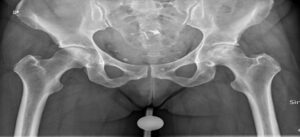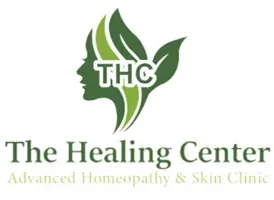Exploring Avascular Necrosis: Causes, Symptoms, and Treatment Options
Osteonecrosis, another name for avascular necrosis (AVN), is a crippling disorder that develops when a bone loses its blood supply either permanently or temporarily, eventually resulting in the bone’s demise. Although it can affect any bone in the body, the hip, knee, shoulder, and ankle joints are the most frequently affected. We will explore the causes, signs, and available treatments for avascular necrosis in this blog post, perhaps clearing up any confusion surrounding this sometimes misdiagnosed illness.

Causes Of Avascular necrosis :
Avascular necrosis can have a variety of causes, but the blood supply to the damaged bone is frequently disrupted in some way. Typical reasons include:
Trauma : Broken or dislocated bones can harm blood arteries, which prevents blood from reaching the bone and leads to avascular necrosis.
Chronic steroid use : Using corticosteroids for an extended period of time might damage the body’s ability to keep blood vessels and bones healthy, which raises the risk of AVN.
Overindulgence in alcohol : Alcohol can cause blood circulation problems and weaken bones, which puts people at risk for avascular necrosis.
Joint disorders : By generating inflammation and impairing blood flow to the joints, diseases including lupus and arthritis might raise the risk of developing AVN.
Medical therapies : Avascular necrosis is a side effect of radiation therapy and chemotherapy, which are frequently used to treat cancer. These treatments can harm healthy cells and blood vessels.
Symptoms Of Avascular necrosis :
The intensity and location of the afflicted bone can impact the symptoms of avascular necrosis. Nonetheless, typical warning indicators are as follows:
Joint pain : Ongoing discomfort in the afflicted joint that may get worse with movement.
Stiffness : Limited joint range of motion that makes it challenging to carry out daily tasks.
Swelling : Tenderness to the touch together with swelling and inflammation surrounding the injured area.
Joint instability : Weakness or instability in a joint that makes it difficult to walk or bear weight.
Avascular necrosis can eventually advance to the point where the bone collapses, causing significant impairment and necessitating surgical intervention if left untreated.
Treatment Options in Homeopathy for Avascular Necrosis:
Homeopathic medicines : Based on each patient’s unique symptoms and constitution, homeopathy provides a variety of medicines. Certain remedies such as Ruta Graveolens, Calcarea Phosphorica, and Symphytum may be recommended depending on the particulars of the patient’s condition.
Arnica Montana : Because of its analgesic and anti-inflammatory qualities, arnica is frequently used in homeopathy. It can lessen bruising, swelling, and pain brought on by avascular necrosis.
Rhus Toxicodendron : This medicine is frequently suggested for stiffness and soreness in the joints, especially when the symptoms worsen with initial movement but become better with continued activity.
Calcarea Fluorica : This supplement may be helpful in cases of avascular necrosis where bone integrity is compromised, as it is prescribed for disorders involving weakening or degenerating bones.
Silicea : When avascular necrosis is present along with a delayed healing process, purpuration, or discharge, silicea is recommended. It might support tissue regeneration and repair.Speak with a competent Homeopath : It’s imperative that anyone thinking about receiving homeopathic treatment for avascular necrosis speak with a competent homeopath first. To determine the best remedy or remedies, a qualified homeopath will perform a comprehensive evaluation of the patient’s symptoms, medical history, and general health.

